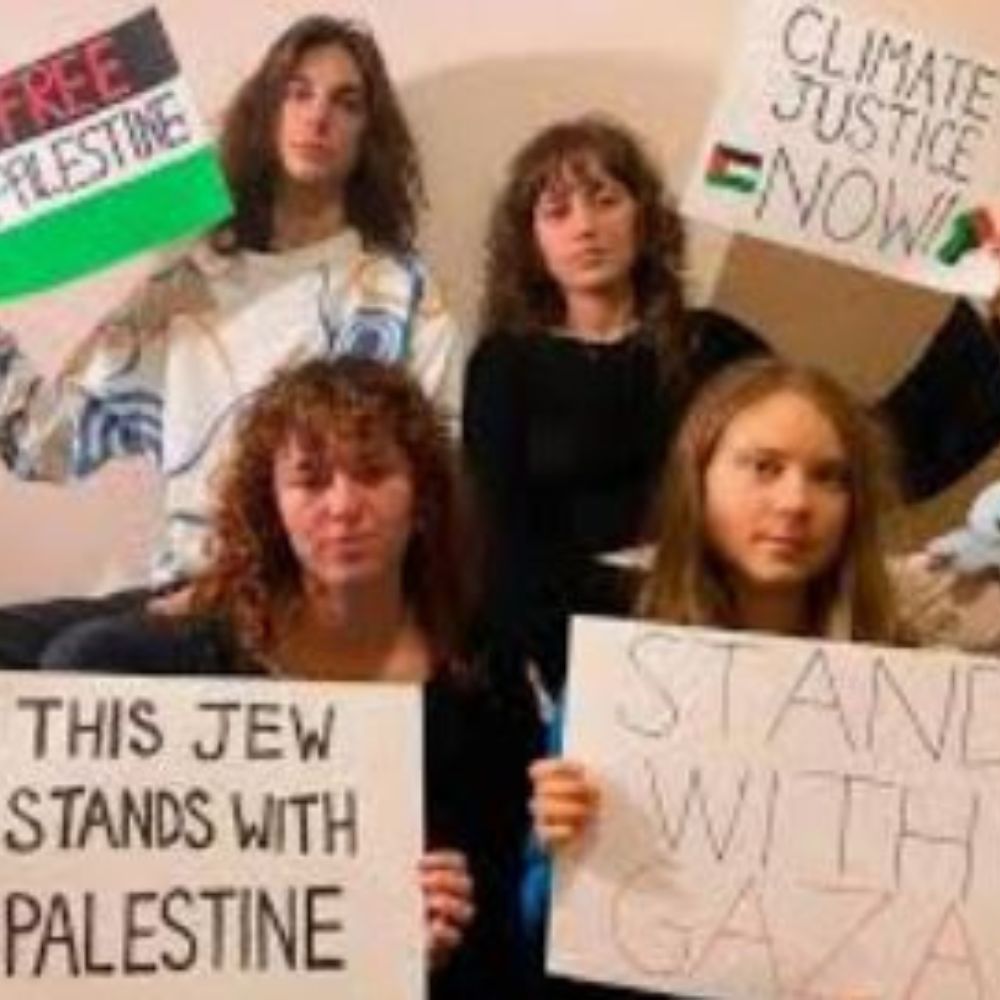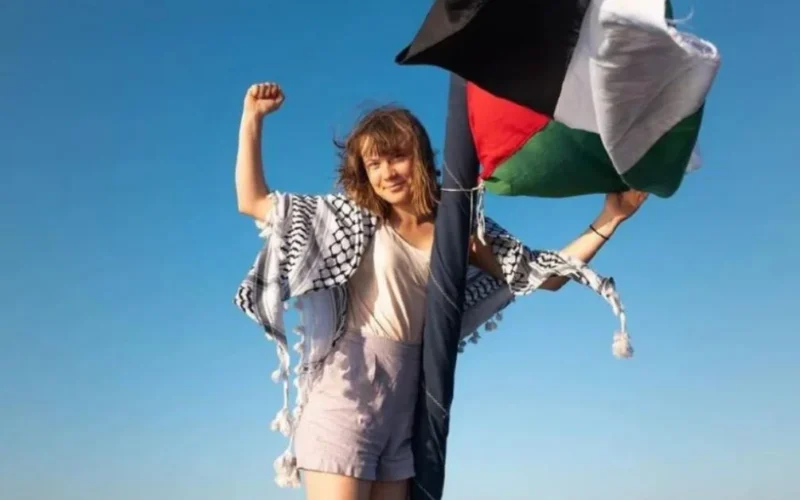Table of Contents
Greta Thunberg on the Gaza Flotilla
In early June 2025, renowned climate activist Greta Thunberg joined a humanitarian flotilla bound for Gaza, making global headlines once again. Her decision wasn’t just a spontaneous act of protest, it was part of a well-planned mission organized by a coalition of human rights groups aiming to deliver medical and food aid to Palestinians amid an ongoing humanitarian crisis.
1. The Mission’s Purpose and Global Support
The flotilla was part of an initiative known as “Freedom Flotilla Coalition”, a network of organizations from over 30 countries dedicated to challenging Israel’s naval blockade on Gaza. This voyage, dubbed the “For the Children of Gaza” campaign, carried vital supplies and symbolized solidarity with civilians trapped in conflict.
Greta Thunberg, long recognized for her environmental work, said she joined the mission to “stand against injustice in all forms, including environmental racism and war.” Her involvement brought massive global attention to the cause.

Some well-known figures and organizations backing the initiative included:
- International Solidarity Movement
- Jewish Voice for Peace
- Human Rights Watch members
- Celebrities like Roger Waters and Susan Sarandon expressing public support
2. Greta’s Statement Before the Departure
Before the boat set sail from the Mediterranean coast, Greta posted a message on her social channels:
“I’m joining this voyage not just as an activist, but as a witness. The world must not look away from what’s happening in Gaza.”
She emphasized that activism must be intersectional and urged young people around the world. She speaks up not only for the planet but for human dignity.
What Happened During the Boat Seizure?
The mission was peaceful and symbolic but it was intercepted by Israeli forces before it could reach Gaza.
1. Israel’s Interception in International Waters
On June 8th, 2025, the flotilla was intercepted about 70 nautical miles from the Gaza coast. The Israeli Navy boarded the lead ship, The Madleen, in international waters. According to multiple witnesses, the boarding happened swiftly and without resistance from those onboard.
Israeli officials claimed the operation was in line with their security protocols. Armed officers took control of the vessel and redirected it to the port of Ashdod for inspection.
2. Greta’s Detention and Deportation

Thunberg, along with several other activists, was detained upon arrival. She was reportedly treated respectfully but firmly, held for questioning, and then deported back to Sweden within 36 hours. No formal charges were filed, but Israel banned her from reentry.
Despite no signs of physical mistreatment, Greta later described the situation as “state-level intimidation.” Israeli authorities defended their actions as legal and necessary under national security concerns.
Global Reactions and Media Coverage
The incident triggered immediate international attention. News outlets, activists, and political figures worldwide began weighing in.
1. Political Leaders Weigh In
Donald Trump, the U.S. president, posted on social media:
- “Greta should stick to talking about trees and stop pretending she’s a freedom fighter. Total disgrace.”
- His remarks sparked widespread backlash, particularly among younger voters and activists.
Meanwhile, the European Union issued a formal statement expressing concern over the incident and calling for a review of the legality of Israel’s actions in international waters. The United Nations Human Rights Council urged an investigation into the interception.
2. Public and Social Media Backlash
On platforms like X (formerly Twitter), hashtags such as #FreeGreta, #GazaAidRaid, and #JusticeForActivists quickly began trending. Millions shared messages of solidarity, while others criticized Thunberg for involving herself in complex geopolitical issues.
Supporters praised:
- Her courage to take real action
- Amplifying underreported issues
- Bridging environmental and human rights causes
Critics claimed:
- She was naïve and misinformed
- The mission was politically biased
- She was being used by activist groups
One viral video showed Greta raising her fist while being escorted by Israeli officers fueling debates about civil disobedience and symbolism in modern activism.
Greta’s Response After the Incident
Back in Sweden, Greta quickly took to the media to share her side of the story.
1. Accusations Against Israel
In a press conference, Thunberg accused Israel of “kidnapping in broad daylight” and called the deportation “a violation of international law.” She claimed the raid was meant to silence peaceful protest and warned that ignoring Gaza’s suffering contributes to what she called “a genocide in progress.”
Her words drew both admiration and criticism, depending on political perspectives.
Media Interviews and Social Posts
Greta appeared on major outlets including the BBC, Al Jazeera, and Democracy! Now, using her platform to push for international pressure on Israel and increased humanitarian access to Gaza.
She later posted:
- “They may have removed us from that ship, but they cannot remove the truth.”
Her social media following spiked, and thousands of new young activists joined climate and justice movements in solidarity.
What does this mean for Activism and Protest?
This incident adds a powerful chapter to the evolving story of activism in the modern world.
Risks for Climate and Human Rights Activists
Activists today face growing risks, especially when they cross into geopolitical hotspots. Their participation in such missions can lead to detention, blocklisting, or even violence.
Common consequences include:
- Deportation or entry bans
- Damage to public reputation
- Political retaliation
- Online harassment and misinformation campaigns
Still, many see this risk as a necessary part of advocacy in a world where traditional politics often fail to protect the vulnerable.
The Future of Greta’s Activism
Greta Thunberg’s Gaza voyage marks a shift in her focus from purely environmental activism to broader human rights work. This may attract new supporters and new critics.
Her next steps could include:
- Organizing global solidarity protests.
- Collaborating with humanitarian NGOs.
- Using climate justice platforms to link environmental and social issues.
Whatever she does next, one thing is certain: Greta remains one of the most influential voices of her generation, unafraid to challenge authority even at sea.

